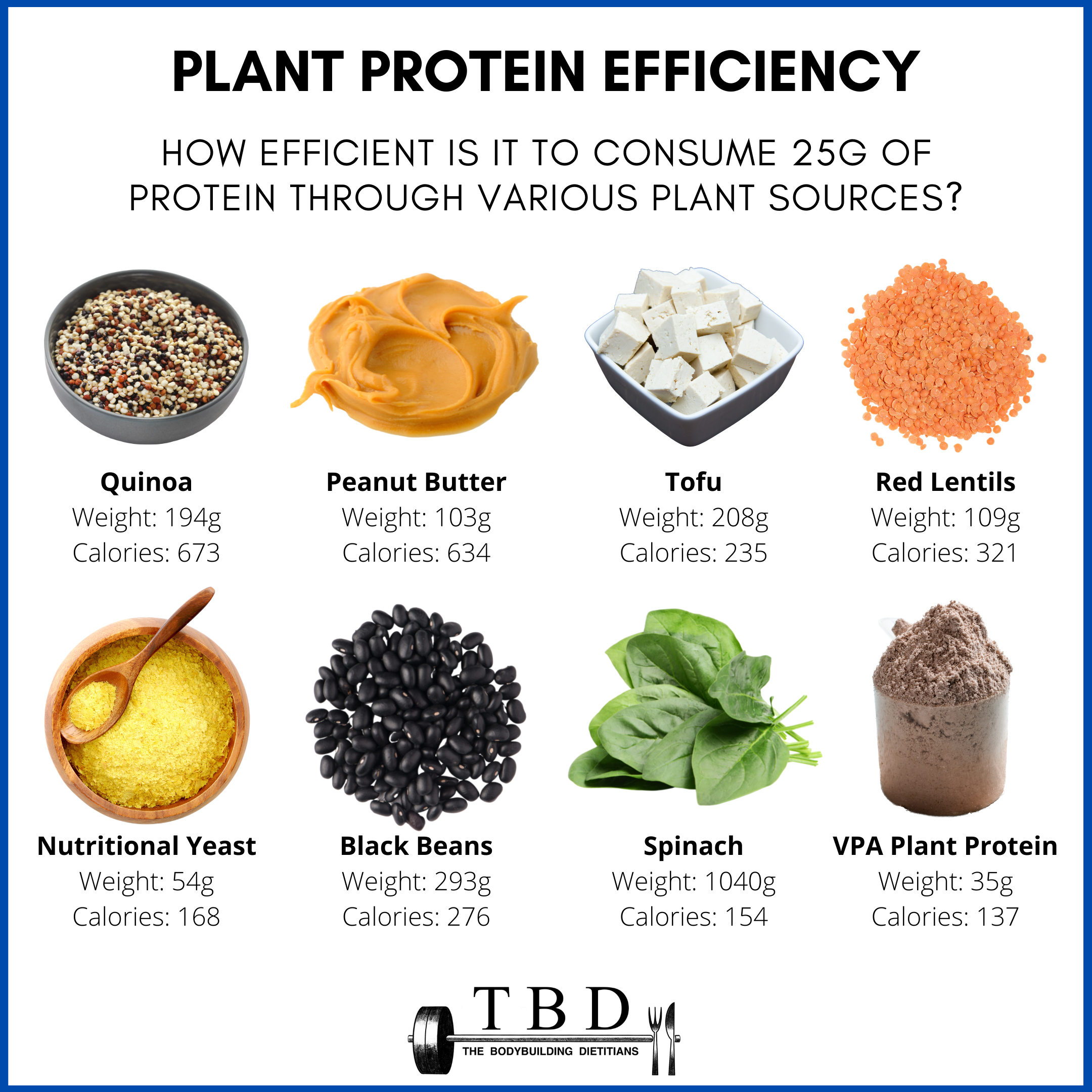Plants are AWESOME and there’s no doubt about it – they’re dense in micronutrients and phytonutrients, provide a diversity of dietary fibre, they’re an excellent source of complex carbohydrates, and are usually quite hydrating too! However… when it comes to obtaining adequate protein purely from plants… there can be quite a few caveats to consider.
Compared to traditional omnivorous protein sources (think egg whites, chicken breast etc.) which are essentially pure protein, micronutrients and water, plant protein will more often than not come with additional energy. Not to mention a myriad of additional nutrients in addition to protein. For example, compared to obtaining 25g of protein from egg whites (100 calories, 0g fat, 0g carb, 0g fibre) obtaining 25g of protein from peanut butter (643 calories, 56g fat, 10g carb, 7g fibre) is not considered as efficient from an energy perspective. However, on the flip side you COULD consume 25g of protein from spinach for a similar caloric value to egg whites... but you would need to eat 1kg of leaves.
Therefore, what can you do about this protein predicament? Well, when creating a balanced meal with a primary source of protein, carbohydrates, fatty acids and fruits/vegetables, aim to choose a primary plant protein source with a high ratio of protein to calories/additional nutrients (e.g tofu or vegan protein powder). Following this, add supplementary plant sources that STILL contain some protein, but are more-so considered a rich source of complex carbohydrates and/or dietary fat. This will not only help you create a nutritious, balanced meal, but also a combination of different plant sources can ensure you are obtaining all of your essential amino acids within a single meal to replicate a HBV (high biological value) source of protein.
Let us know, did you find this post helpful? And more so... are you game enough to eat 1kg of spinach???
